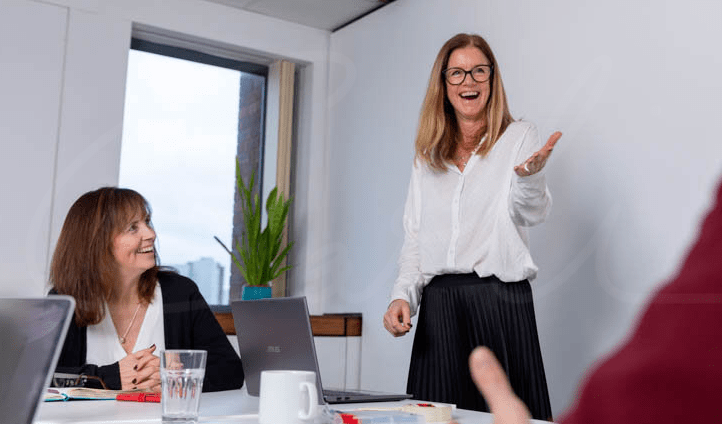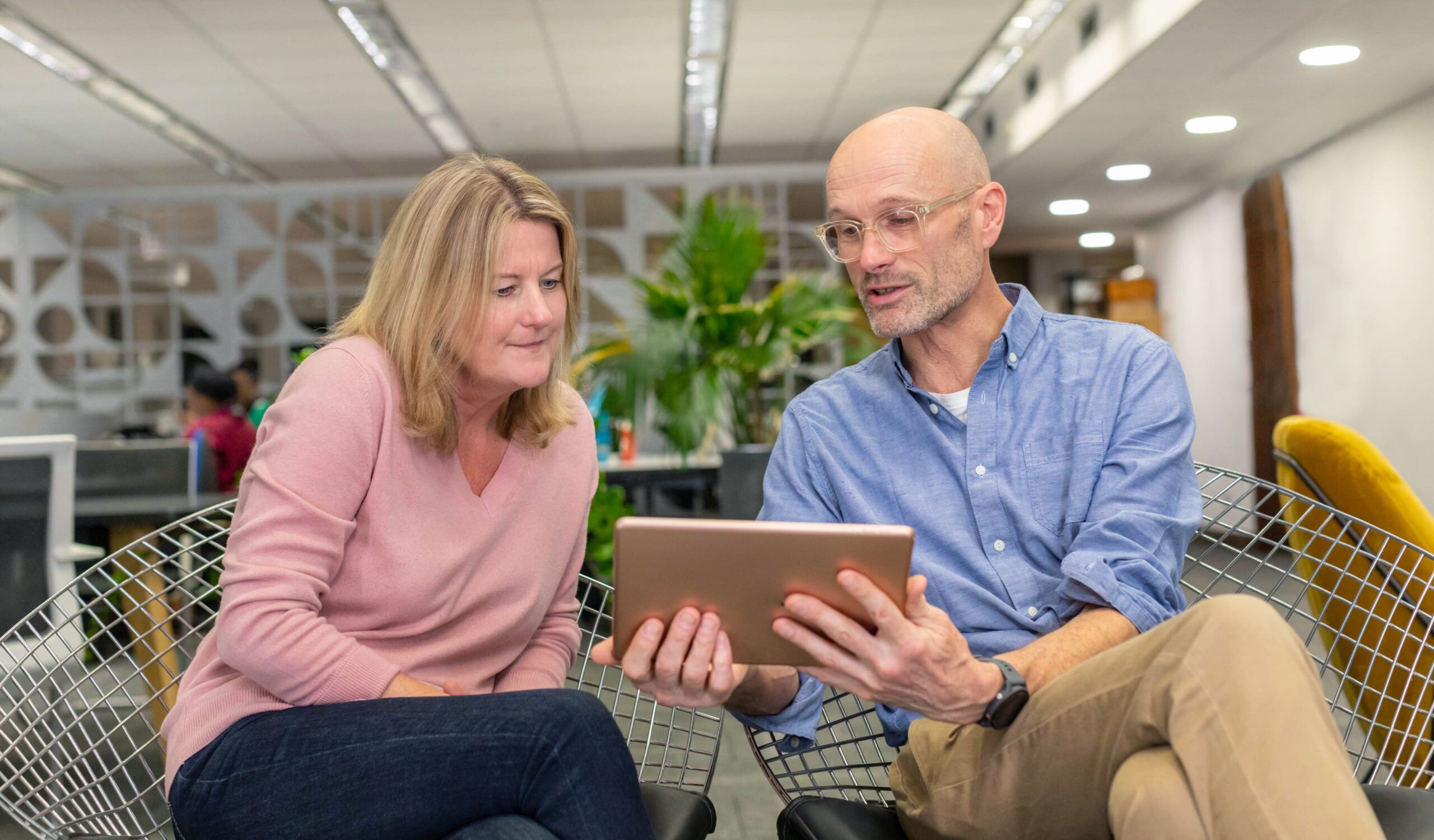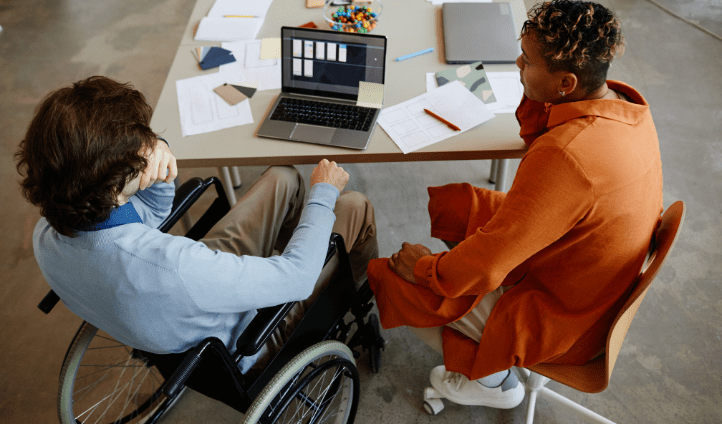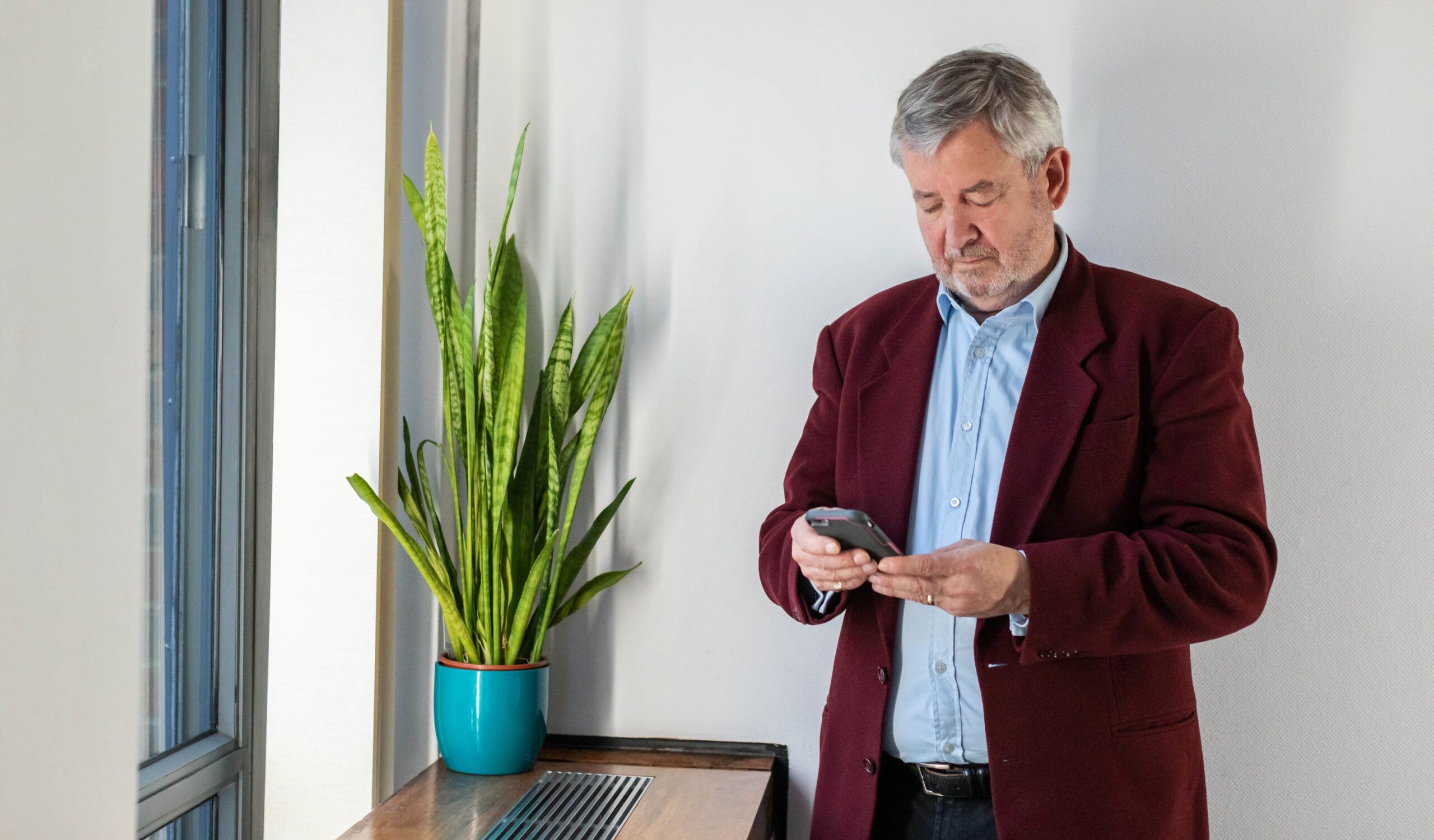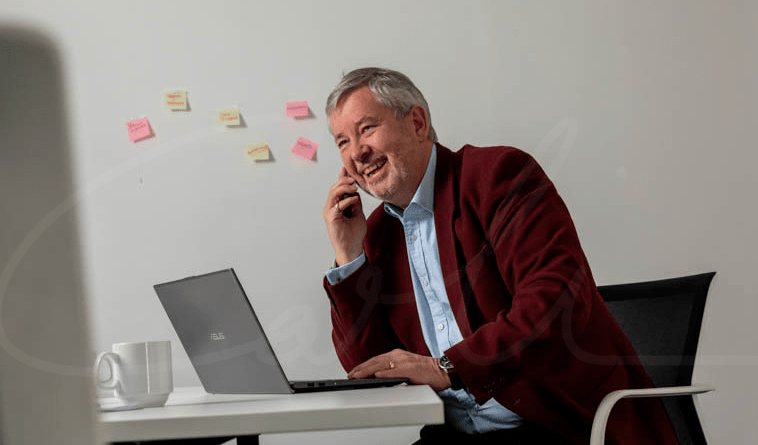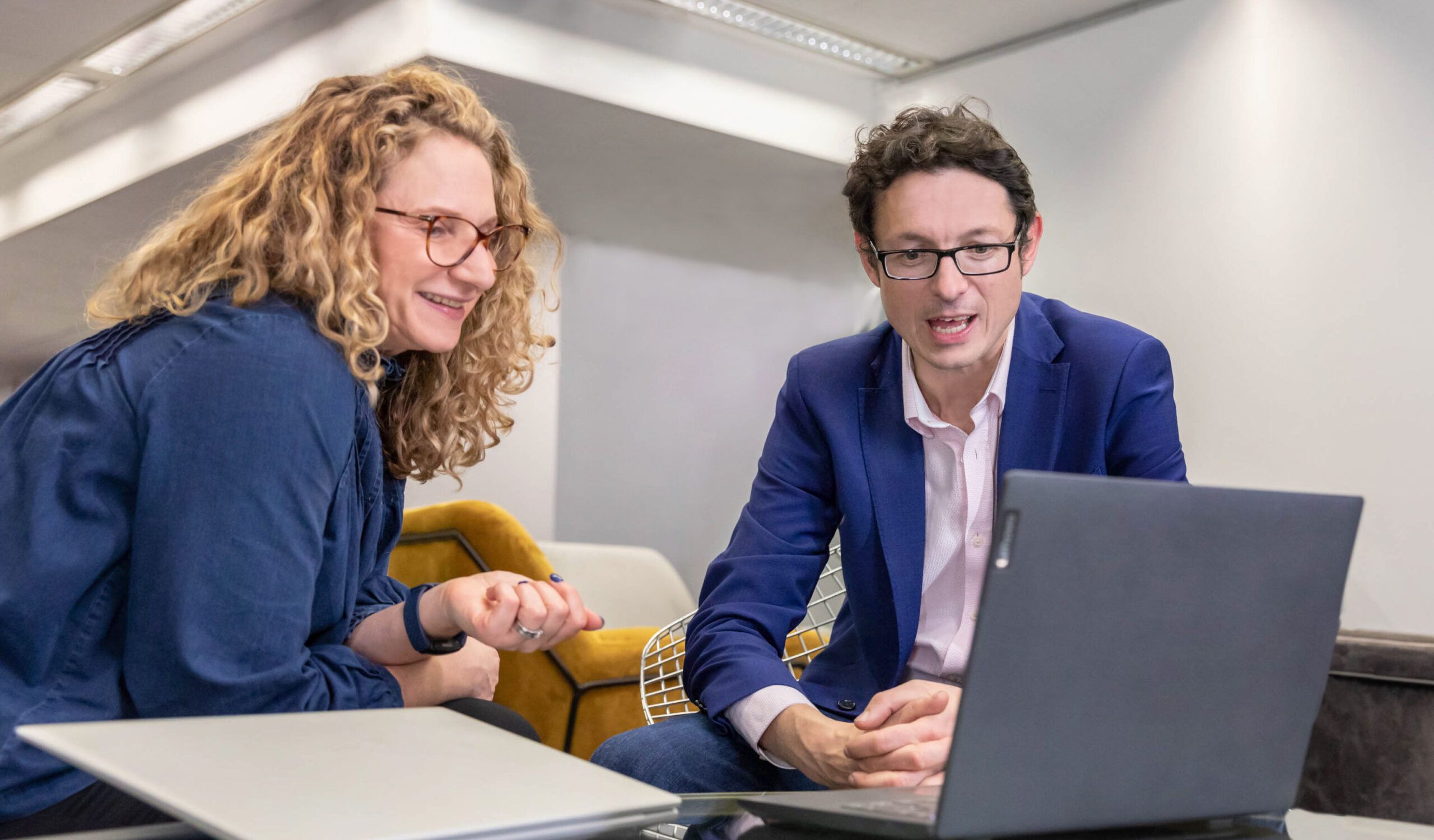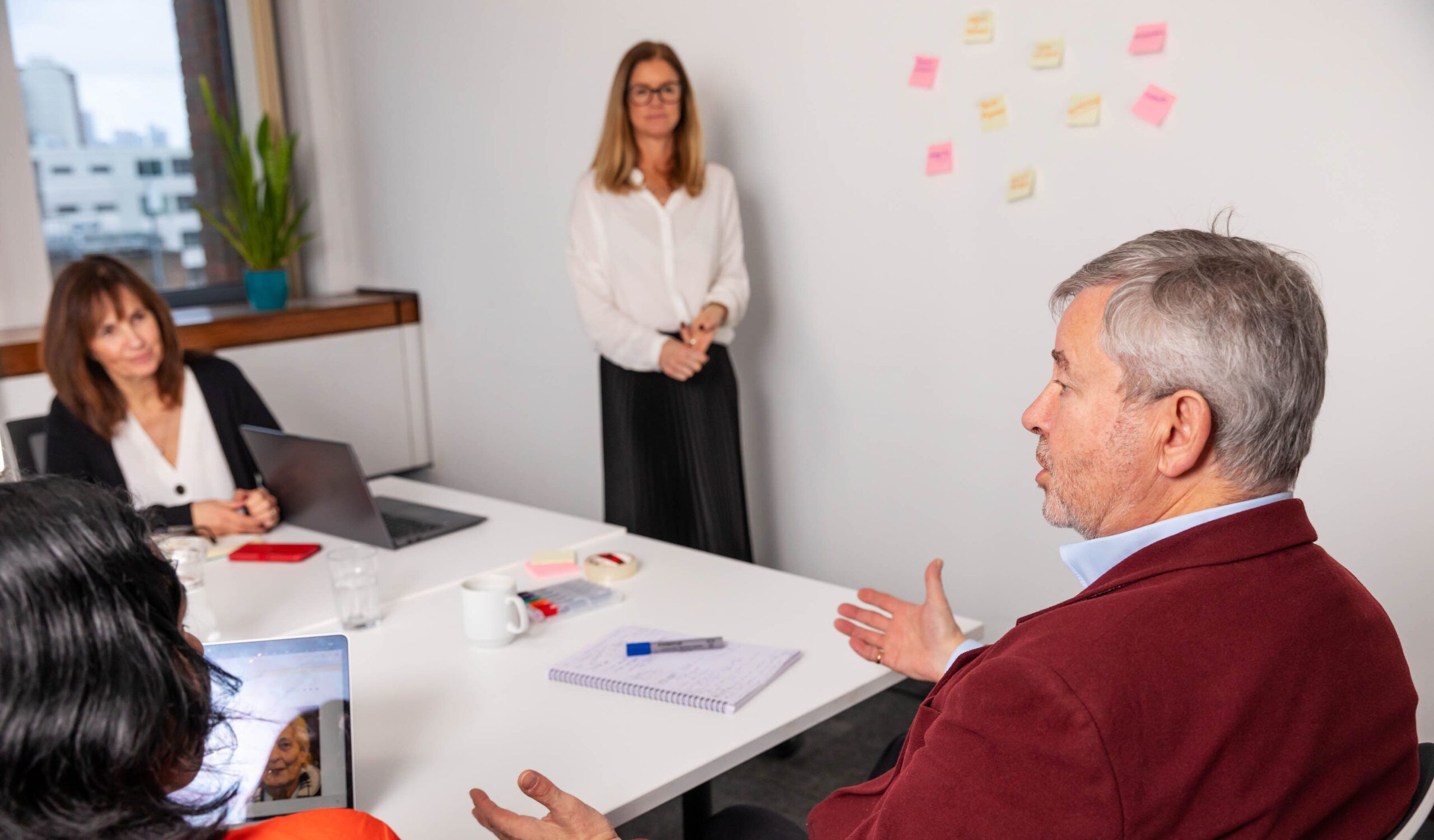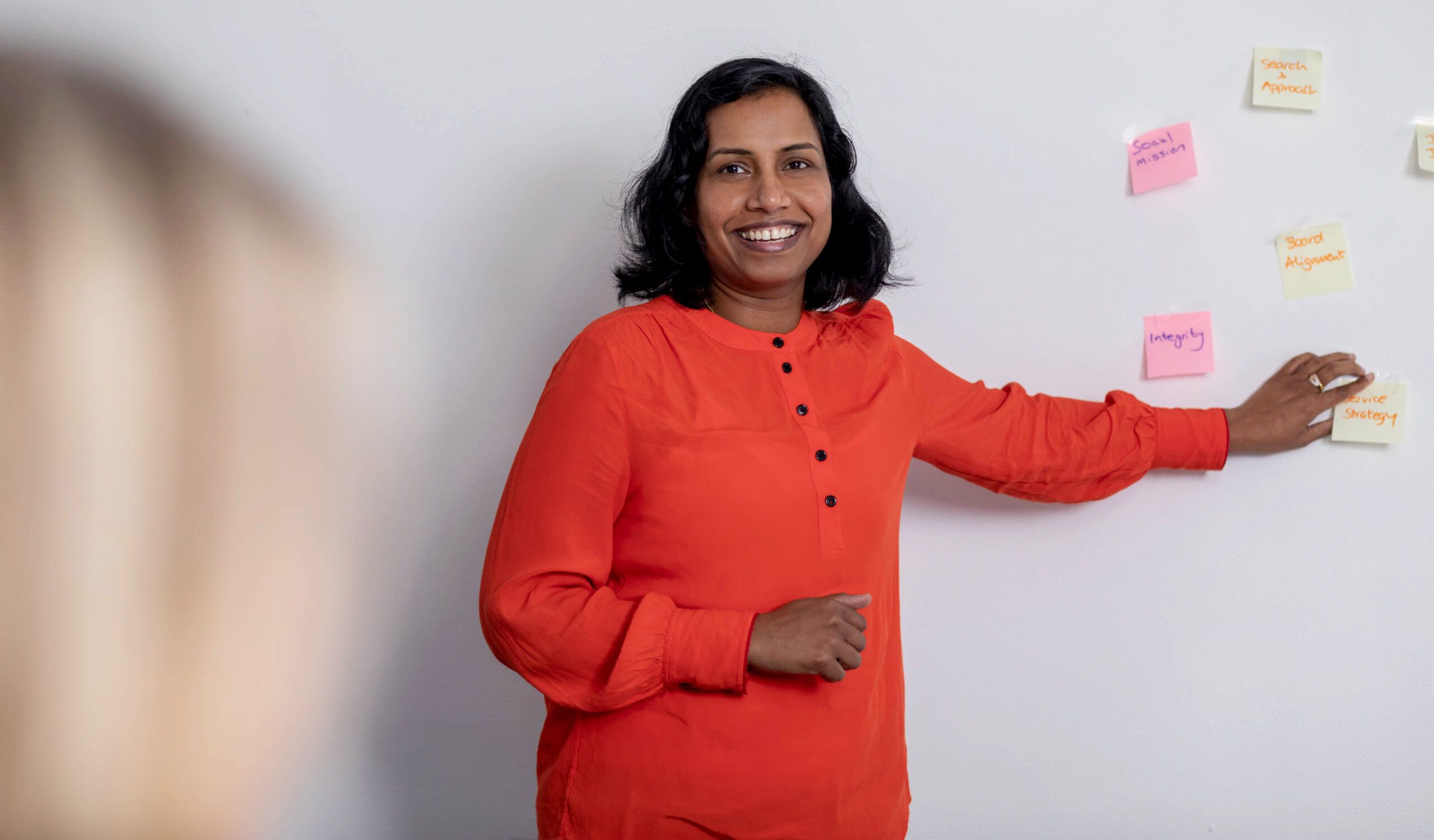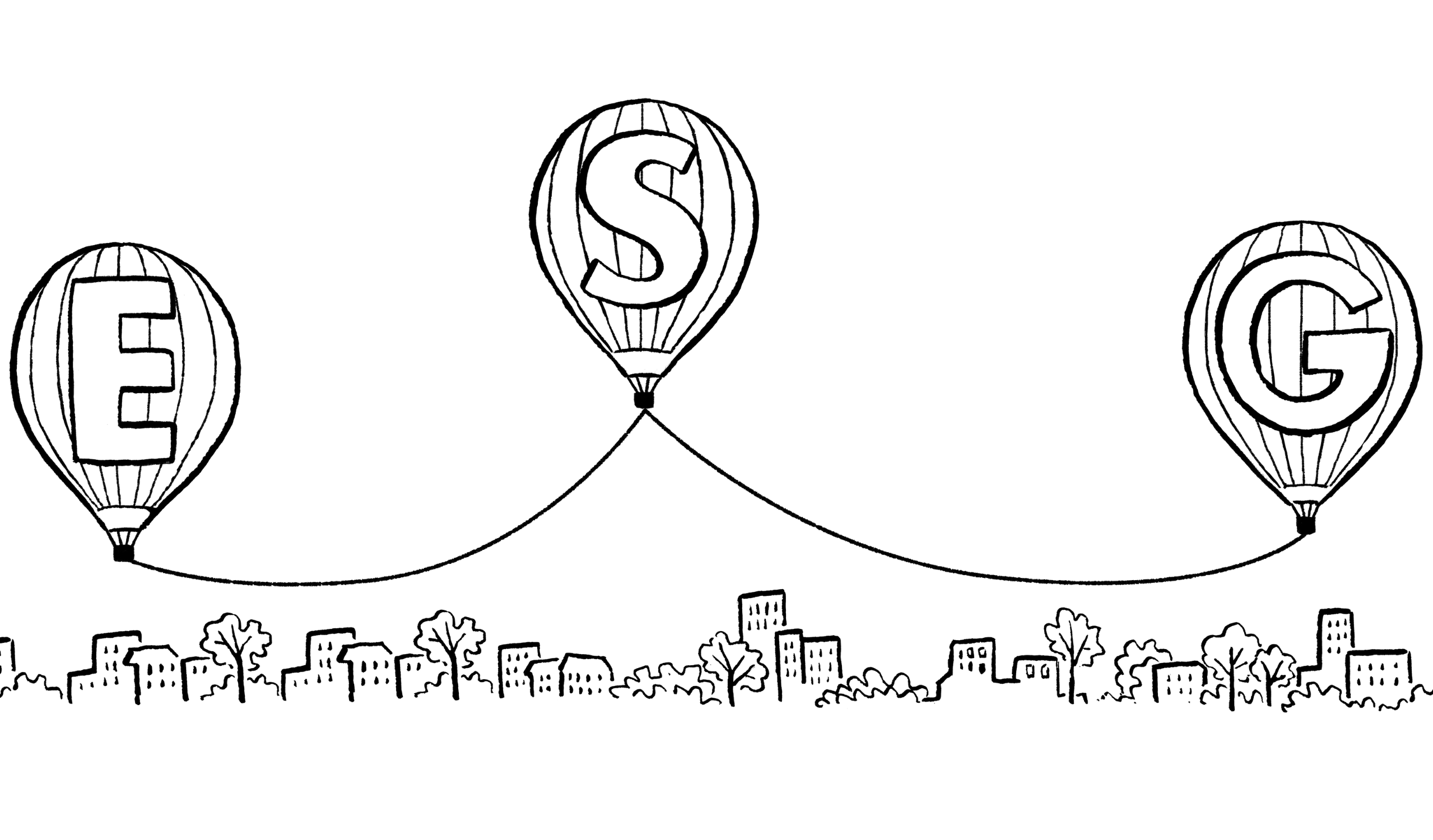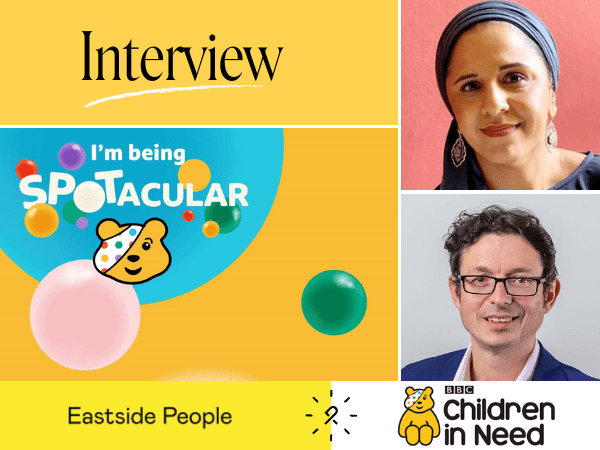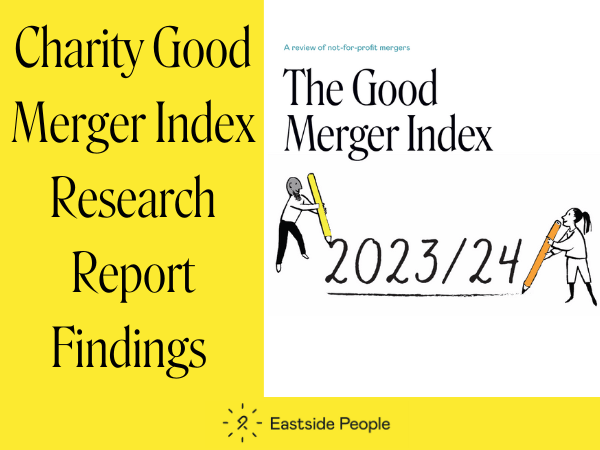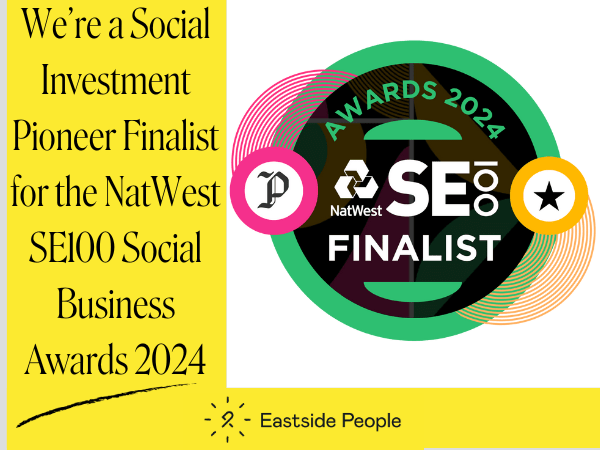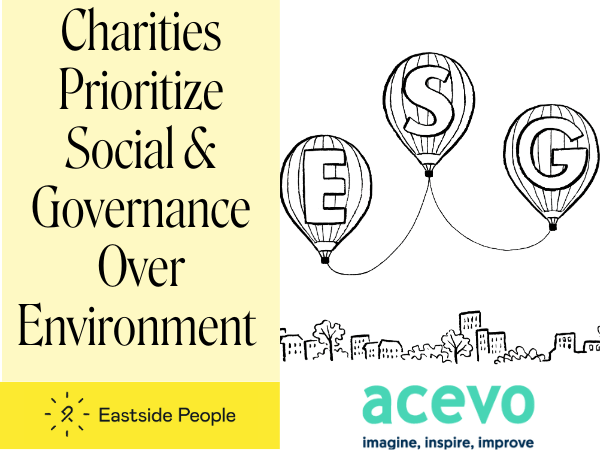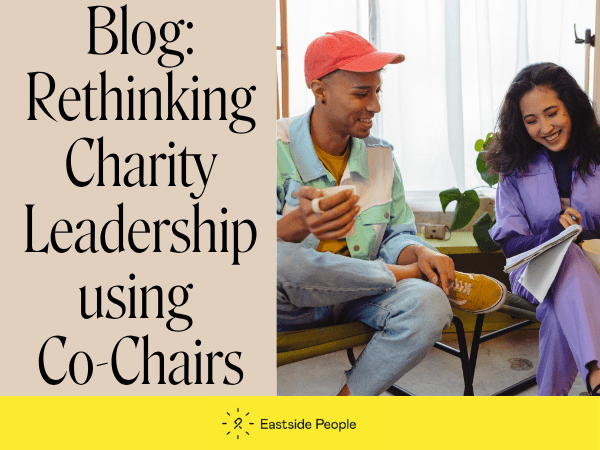By Richard Litchfield, CEO, Eastside People
Intro
Our organisation has been delivering consultancy and more recently recruitment services to the not-for-profit sector for twenty years.
As part of a new rebrand to Eastside People we asked some charity CEOs and other partners in the sector about when we are at our best.
What came back was that we’re particularly valued as a community of professionals – a group of experienced people with multi-disciplinary skills, from different industries and backgrounds.
This was reassuring to hear.
But I’d like to offer an alternative view that perhaps our biggest asset is the time we spent delivering the over 2,200 projects to over 1,000 clients. Time flies when you’re having fun! In retrospect, this huge body of prior work has imperceptibly and steadily crept up over time and gives us both experiential insights and empirical data on how not-for-profits either build their capacity or capabilities.
So what have we learnt?
Evidence
Before jumping in let me clarify our evidence base.
Firstly there are our staff (roughly 10 people) and our consultants (about 100 members) many of whom have been working with us for a long period of time (5 years+) and are the conduits of experiential learning of what has or hasn’t worked within projects.
We also have survey results from 101 clients who have reported back to us once a consultancy project is delivered as well as rich data which is contained within electronic tools, resources, and reports produced by our community of members.
Then there’s the academic research which includes reports by the Third Sector Research Centre undertaken for the Big Lottery Fund (‘Building Capabilities in the Voluntary Sector: a Review of the Market’) and a US study of a 2-year capacity building programme by Tara Kolar Bryan published in the Journal of Nonprofit Education & Leadership. The external evidence is quite diffuse and less robust than you might expect, but it does offer important pointers, many of which have reinforced what we have observed.
Key Ingredients
We have found several important factors which charities and social enterprise need to build their capacity and sustain organisational learning, and these now form part of our own Theory of Change.
In brief these are:
- Leaders are open and ready for change. Senior leaders including board members need to be open to change and prepared to invest into a mix of capability and capacity development. This should be no surprise given that many not for profits are tackling complex societal problems which cross traditional private/public/social boundaries and for which they lack sufficient resources and funding to solve on their own.
- A good diagnosis of the situation. The benefit of a thorough diagnostic process cannot be overstated. This will involve assessing organisational needs, taking account of the wider context the organisation operates in and available resources. Done well, diagnosis can itself contribute to building capacity. The ‘diagnostic moment’ is also an opportunity to reflect on how an organisation has developed strengths previously and what this means for growing new capabilities.
- Access to professionals with the right skills, values and temperament to help. We think that skills are important but values matter too, including a shared drive to help make the world a better place. And what is consistently reported by our clients is the benefit of matching consultants from across industries with their staff teams. Get the right blend reflecting the scale, size, capability and needs of each organisation and you can truly make a world class team for any change project.
- These people should have access to tools and good practice. External consultants and advisors should be well-networked, restless to learn, and able to bring in ideas from over the garden fence acting as bridges to new domains of knowledge
- Trusted and collaborative relationships. Our experience bears out that lasting change is something you do with people, not to or for them. Internal input and buy-in are key. We find success depends on building strong, trusting and respectful relationships with colleagues across client organisations.
- Transferring knowledge. Charity staff are the conduits of capacity building spreading knowledge rather like neural pathways in the brain. Involving multiple staff members in projects is therefore helpful ensuring that new solutions are based on a diverse range of relevant views and creating more touch points to spread new know-how and processes.
- Implementation is what makes change stick. Therefore sustaining improvements depends on taking time to understand how change is effected differently in each organisation – how learning is codified and ‘baked in’ or institutionalised – and on providing bespoke, practical solutions that leaders can take forward with confidence.
So what does this all mean?
Our rebrand to Eastside People has been an extraordinary opportunity to stop, reflect and distil what we have learnt in the first two decades of our work.
My hope is that it will help us tell a new story to our clients and partners about how we can be an ally contributing to their capacity and impact.
It’s exciting and, what’s more, it commits us to a new future in which we will work that much harder to gather know-how on organisational development and make it available for charities, social enterprises, funders and policy-makers.
Richard Litchfield
CEO Eastside People
To learn more about how Eastside People can support your organisation’s capacity building efforts, please get in touch with us.

